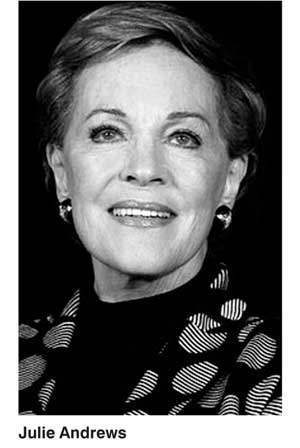Monday Feb 16, 2026
Monday Feb 16, 2026
Saturday, 5 November 2016 00:01 - - {{hitsCtrl.values.hits}}
Many may remember the musical ‘My Fair Lady’ which was screened in Colombo over 50 years ago. It was a highly-successful movie based on Bernard Shaw’s play ‘Pygmalion’ with Audrey Hepburn playing the key role of Cockney flower seller, Eliza Doolittle with Rex Harrison as arrogant phonetics professor Higgins who boasts he could teach her proper English.
Sixty years ago, the stage play ‘My Fair Lady’ was shown in Broadway Theatres with Julie Andrews playing the lead role. I had the opportunity of seeing the play in London while on a Commonwealth Press Union fellowship.
It was a nostalgic evening when I walked into the Sydney Opera House to see the Australian production now being staged. Even more interesting is the fact that it has been directed by Julie Andrews to mark the 60th anniversary of the play. The full house thoroughly enjoyed the slick production with every aspect – acting, music, choreography, costumes, lighting, stage sets –  maintaining a high standard.
maintaining a high standard.
Describing the original production as one of the great musicals from the Golden Age of Broadway, Julie Andrews, in an interview before her departure after directing the play, quotes ‘West Side Story’, ‘Gypsy’ and ‘The King and I’ as some of the other ‘greats’ in the 1950s. Of ‘My Fair Lady’ she says: “I have memories of how glorious it was, the wonder of it, that it all came together – the words and music, costumes, scenery and choreography. Everyone was at the peak of their creative talents and it was an awesome experience.”
As for her own experience and memories of playing Eliza Doolittle, she says she remembers the cadences and emphases on certain words. “I don’t think the songs will ever leave me. Both have helped me cement for my actors what I feel they should do.”
She speaks of the music and the singing: “Every song in the show stems from truth and is faithful to the character it was written for. For example, Eliza’s first song ‘Wouldn’t it be Loverly’, tells us what she desires most is a warm room with a comfortable armchair and a fire, and may be a loving fellow who will take care of her. Her next song, ‘Just you wait’, is a blazing tirade at Higgins for the way he’s bullying her. ‘I could have danced all night’ is a love song that never once mentions the word ‘love’. Higgins’ song ‘I am an ordinary man’ describes him absolutely and the deeply moving ‘I’ve grown accustomed to her face’ sums up perfectly Higgins’ own emotional journey.”
She recalls how Shaw had gone into detail what life was like in London in 1912. Regarding Eliza, he describes how destitute she is, how cold her one-room lodging is; when she goes to bed at night she doesn’t have a nightdress but sleeps in her underwear and places her everyday clothes on top of her blanket to keep warm. Eliza doesn’t know what a bath is. She is as clean as she knows how to be but she’s never had a bath.
As for the challenges she faced in the Australian production, she says that making the show intimate was one of the challenges. Another was to bring home the importance of Shaw’s concept: What prevents a flower girl from becoming a princess is simply how she uses the English language.
Julie Andrews is all praise for everyone who worked with “absolute dedication”.